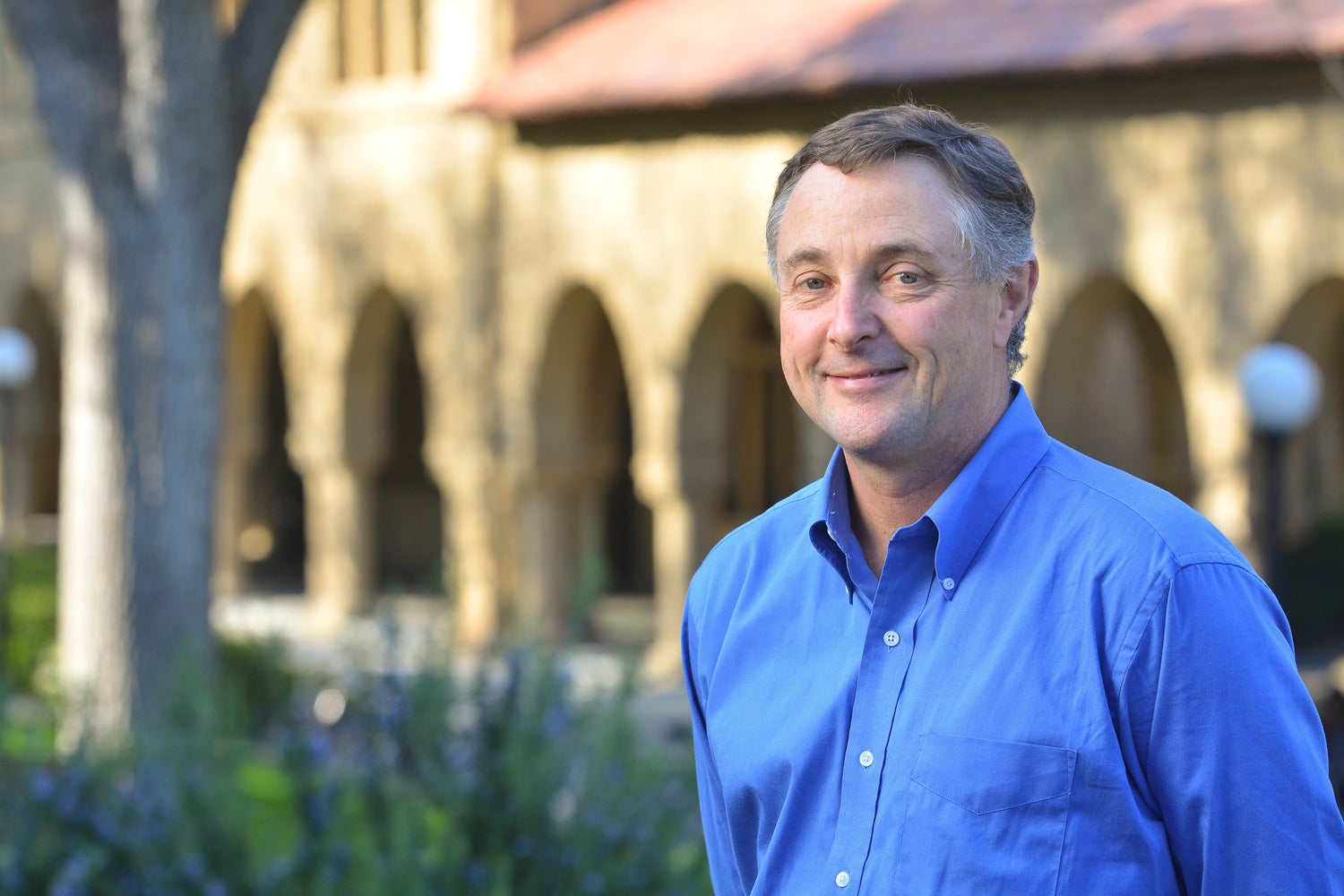Stanford honors senior associate engineering dean and the Clayman Institute for Gender Research with 2019 President’s Awards for Excellence Through Diversity
The award recognizes and honors individuals and programs that have made exceptional contributions to enhancing and supporting diversity within the Stanford community.
At an awards ceremony Wednesday, President Marc Tessier-Lavigne will present a 2019 President’s Award for Excellence Through Diversity to the Michelle R. Clayman Institute for Gender Research and to Thomas Kenny, senior associate dean for student affairs in the School of Engineering.
During the ceremony, Tessier-Lavigne will present each recipient with a framed citation.
Stanford established the awards in 2009 to honor individuals and programs that have made exceptional contributions to enhancing and supporting diversity within the university community.
The Clayman Institute for Gender Research
The Clayman Institute for Gender Research, which was established in 1974, was honored “for advancing gender equality and driving culture change at Stanford and beyond by translating the benefits of feminist scholarship into practical applications.”

The Michelle R. Clayman Institute for Gender Research was honored for advancing gender equality and driving culture change at Stanford and beyond. (Image credit: L.A. Cicero)
The citation commended the Clayman Institute “for building community and support among diverse groups of Stanford students, faculty and staff through its Voice and Influence programs and other cross-university collaborations and outreach efforts.”
It was also honored “for fostering knowledge through its support for gender-related research at all of Stanford’s seven schools, as well as by convening leading gender researchers from around the world for conferences, symposia and research collaborations.”
The Clayman Institute was also commended “for creating useful case studies and conducting outreach to improve diversity efforts and minimize gender biases in the workplace and in recruitment practices at Stanford, in Silicon Valley, and beyond.”
At the ceremony on Wednesday, Shelley J. Correll, the Barbara D. Finberg Director, and Lori Nishiura Mackenzie, executive director, will accept the award on behalf of the Clayman Institute.
Correll, who is also a professor of sociology, said she was thrilled that the institute had received the award.
“It’s one thing to study barriers to equality, it’s quite another to do the work to achieve it,” Correll said in an interview. “I am honored to work with our team who do both with such brilliance and heart. I want to acknowledge each and every one of the institute’s team members – and all of our colleagues across campus – who do the work every day to help Stanford become a place where all people can thrive.”
She urged the Stanford community to continue doing that work – to challenge the status quo, ask hard questions and take new actions in favor of diversity and inclusion.
“Together, we can motivate change, one small and meaningful step at a time, to create a more equal world for all,” Correll said.
Thomas Kenny
Thomas Kenny, a professor of mechanical engineering who has served as senior associate dean for student affairs in the School of Engineering since 2015, was honored “for promoting efforts in equity, inclusion and diversity at the School of Engineering to create an environment in which all students feel a deep sense of belonging and ownership.”

Mechanical engineering Professor Thomas Kenny is senior associate dean for student affairs in the School of Engineering. (Image credit: Rod Searcey)
The citation also commended Kenny “for partnering with graduate admissions teams to recruit the best students from a wide variety of backgrounds, personally logging thousands of miles to persuade diverse students to consider Stanford for graduate school.”
Kenny was also honored “for creating and expanding programs, like the Stanford Summer Engineering Academy and the Summer Opportunity program, that improve the transition to Stanford for students from varied backgrounds.”
He was also commended “for involving Stanford’s alumni and friends in these efforts, through the Diversity Task Force and through fundraising that has empowered the school to expand diversity programs and fund new positions in diversity and inclusion.”
Kenny said many people have been contributed to the success of its equity and inclusion initiatives.
Kenny said he especially wanted to thank Noe Lozano, former director of engineering diversity programs, who won the inaugural individual award in 2009, and Sally Gressens, assistant dean of engineering for graduate student affairs.
“They were already involved in the mission when I joined the dean’s office,” Kenny said. “They provided the inspiration, energy, ideas and careful thinking that guided our innovations and enabled our initial progress. We have much to do, and we have a strong and fast-growing team focused on diversity and inclusion in the School of Engineering.”
